Every now and then a good luck also happens. Look at what a friend gave me for free? It is an Atari 1040 ST F, with SM124 monitor.

Along with the computer and monitor, there are also accessories. There is a box of diskettes, an original Atari mouse, a program to record and play music via MIDI ports and manuals.
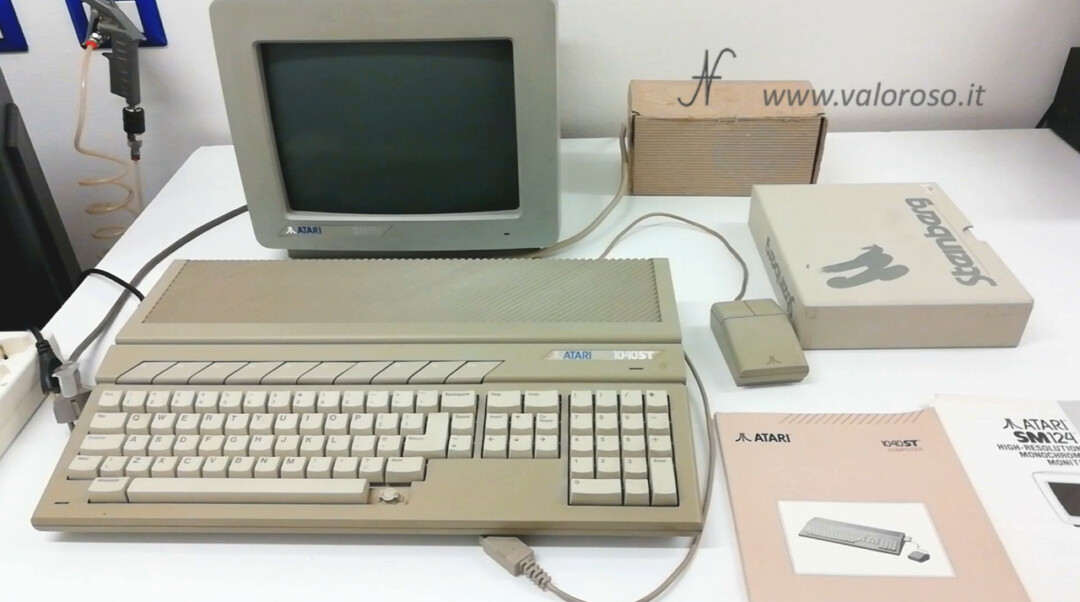
The retro computer Atari 1040 ST
Let's start with the computer description. The Atari 1040 ST F was launched in 1986. It is equipped with a Motorola 68000 16-bit processor, 1 MByte of RAM and integrated double-sided floppy disk drive.
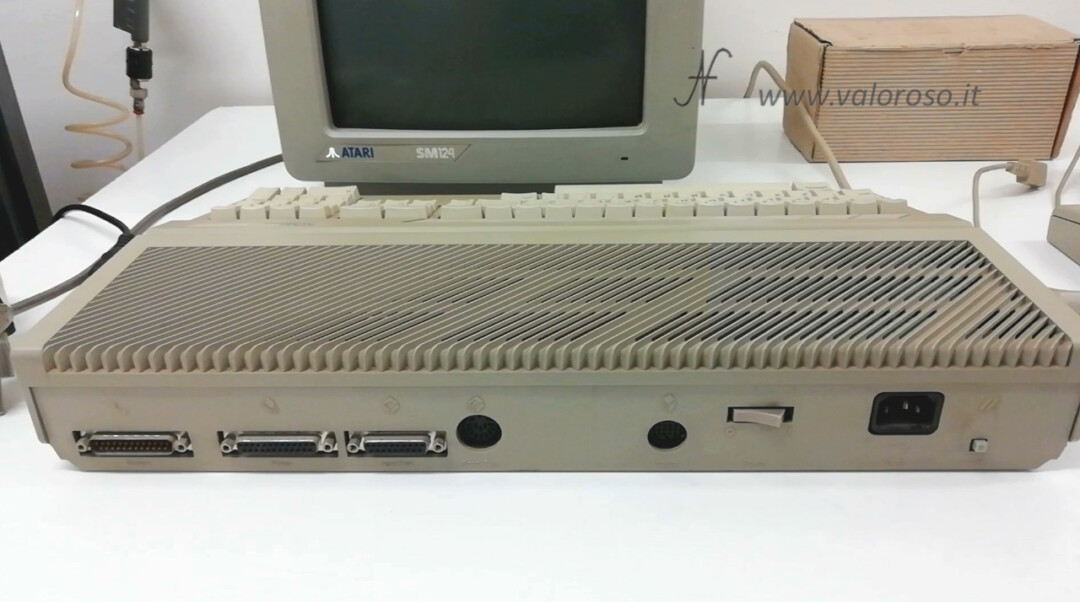
We look at the back doors. Starting from the left, we have:
- The serial port, with 25-pole male D-Sub connector. A modem with RS232 standard can be connected to the serial port, for example.
- The parallel port, with a 25-pole D-Sub connector, to which you can connect a printer.
- The port for the Atari hard disk, with 19-pole female D-Sub connector. From the manual, we read that the hard disk can transfer data at a speed of 10 megabits per second.
- The external floppy disk drive port, with 14-pole DIN round connector. The external floppy disk drive is the secondary drive, as the Atari 1040 ST F already has an internal floppy disk drive.
- Some versions of the Atari ST also have RF output to connect the television, but in mine it is missing.
- This is the monitor door. It can work in three modes, depending on the connected monitor. With the monochromatic monitor SM124 is high definition: 640x400 pixels in black and white. With other monitors it can be 320x200 with 16 colors or 640 x 200 to 4 colors. I will build a video cable to connect the Atari 1040 StF to a color monitor.
- Finally, this is the power connector, IEC C13 standard. The feeder is internal.
At the rear, we also find the power switch and the reset button.

In the right side, we find the floppy disk drive.
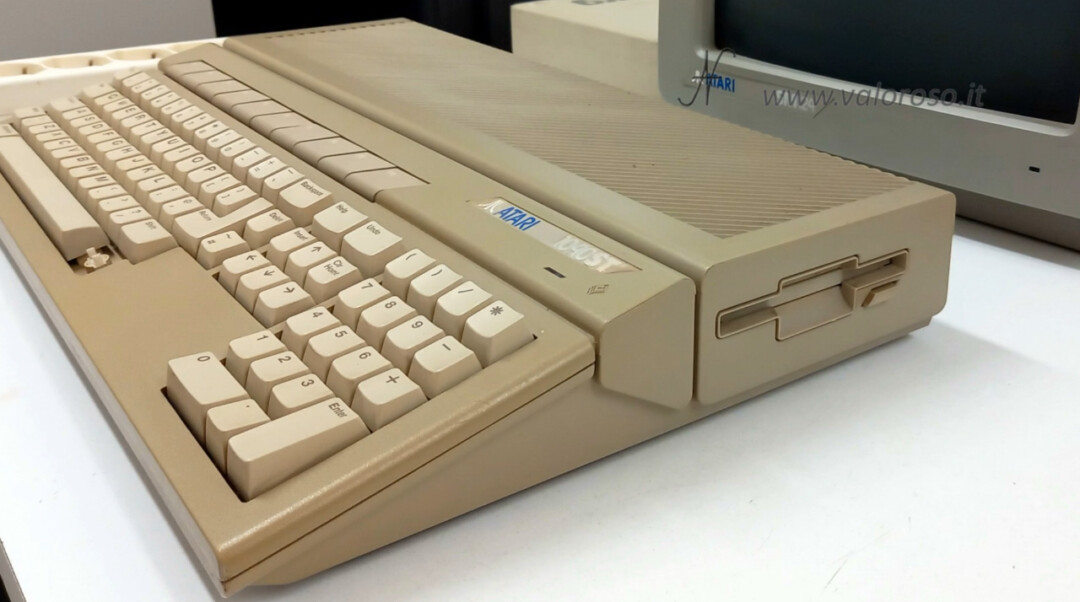
On the left side, we find the two Midi in and Out doors - are 5 -pole DIN connectors - and the expansion door for 40 -pole cartridges.
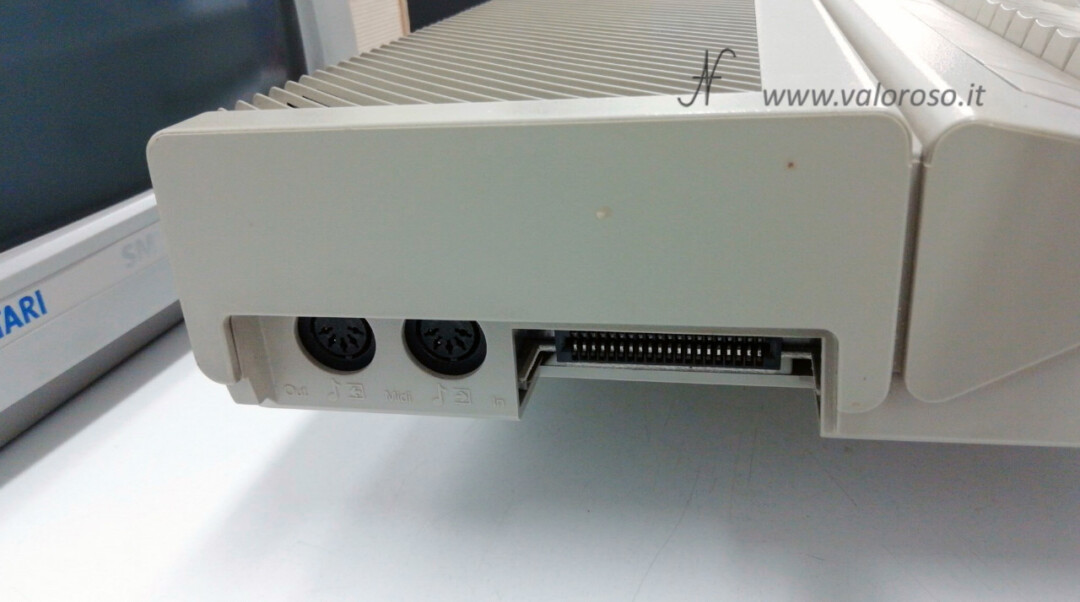
The two ports to connect two joysticks, or a mouse and a joystick, are located at the bottom of the computer. They are two 9-pole D-Sub connectors, male.
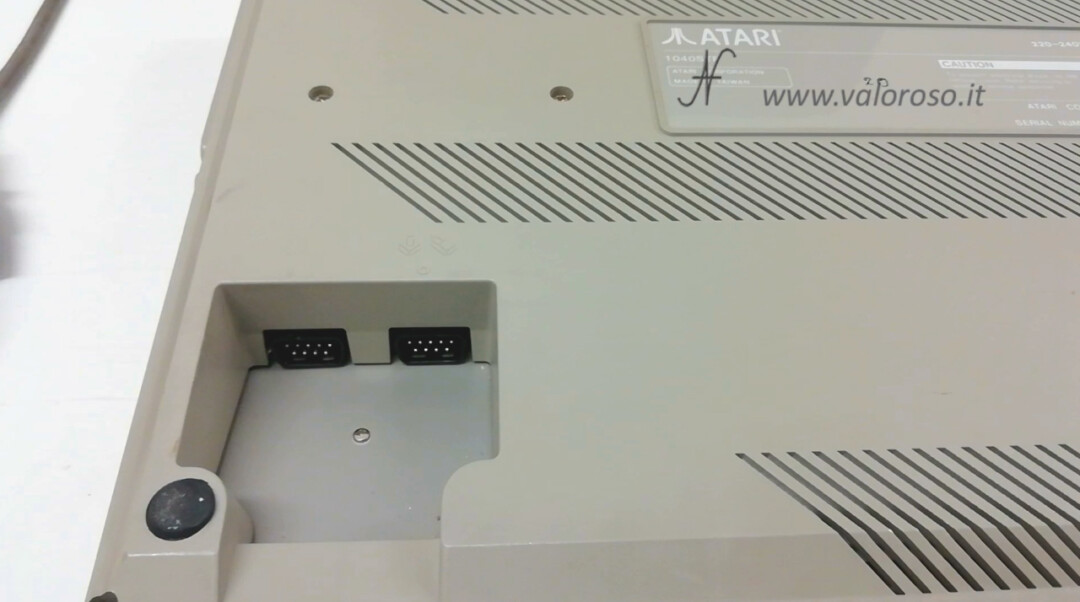
The Atari SM124 monochrome, high-definition monitor
L’Atari SM124 è un monitor da 12", in bianco e nero, ad alta risoluzione: 640x400 pixel.

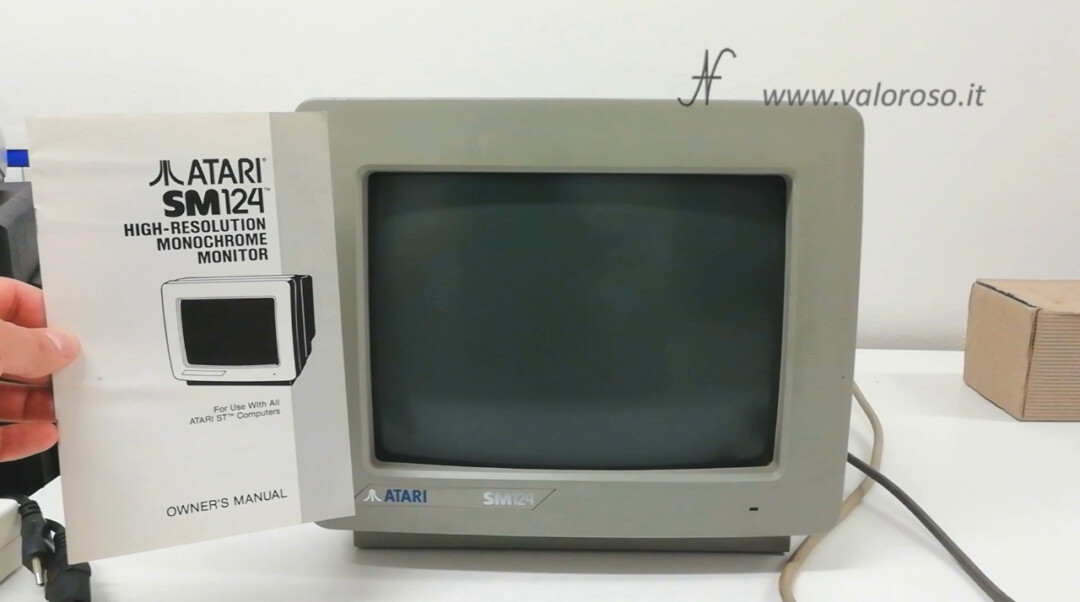
From the back of the Atari SM124 monitor come out the two cables: power and video.
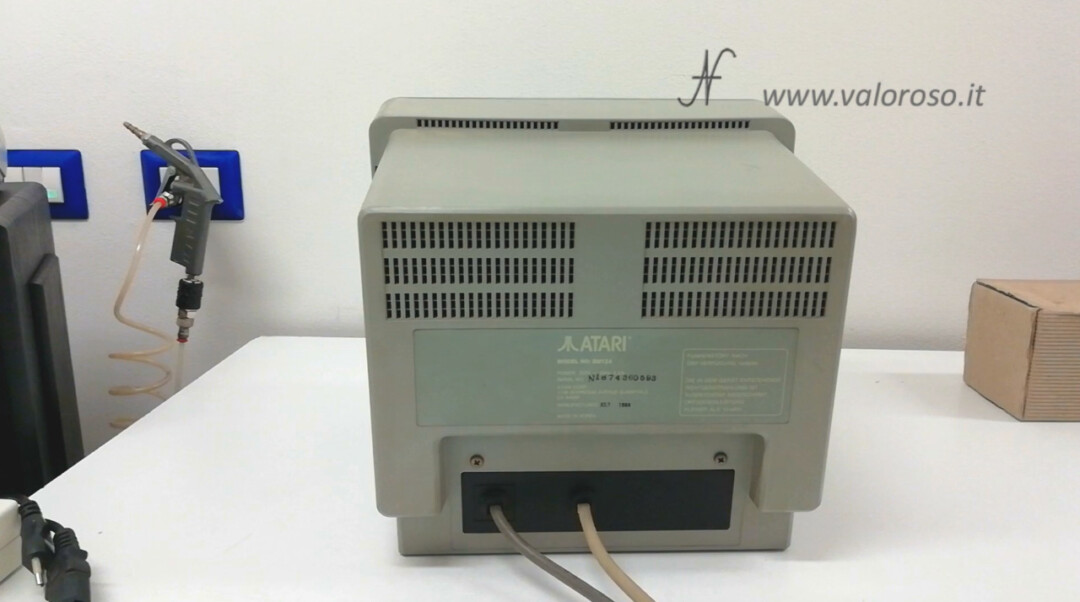
On the right side of the ATARI SM124 monitor there are three knobs. Going up, from the bottom up, we find:
- the knob to turn on the monitor and adjust the volume;
- contrast adjustment;
- brightness.
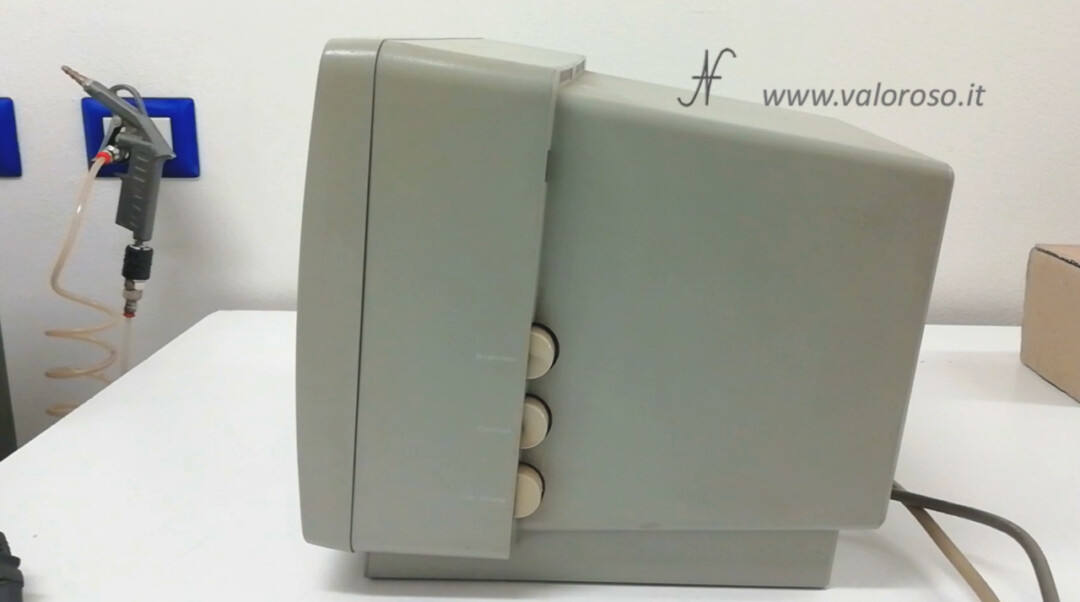
Anche se il monitor è da 12", come si vedrà nelle foto della prova, l'area visibile è decisamente inferiore alla diagonale del monitor.
The MIDI Recording Program: Steinberg PRO-24
The program in this collector is the Steinberg PRO-24.
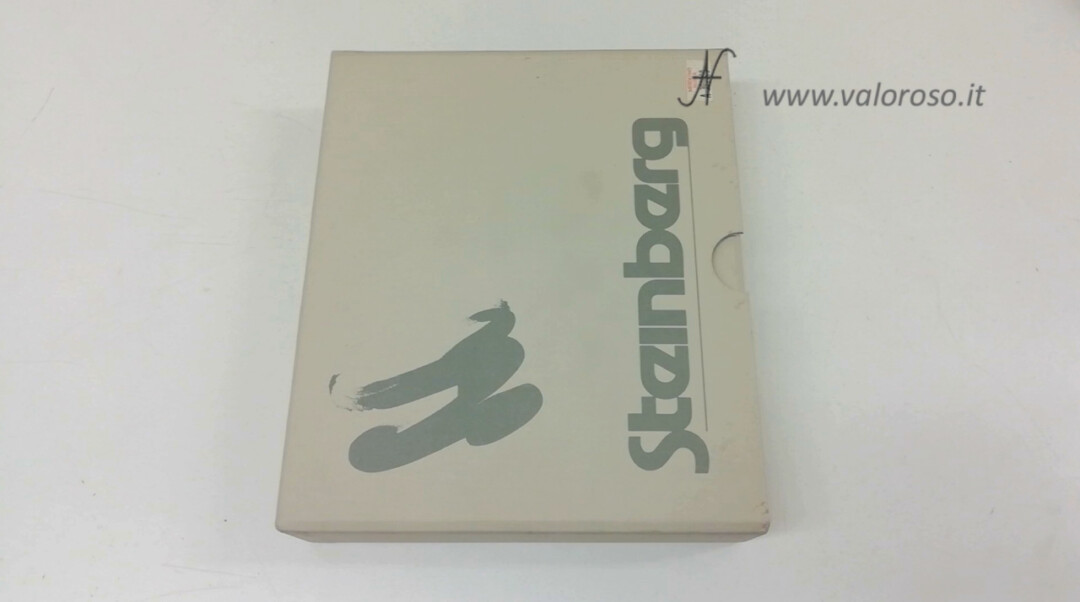
Inside the collector, there is the diskette with the program and the protection key (a cartridge).
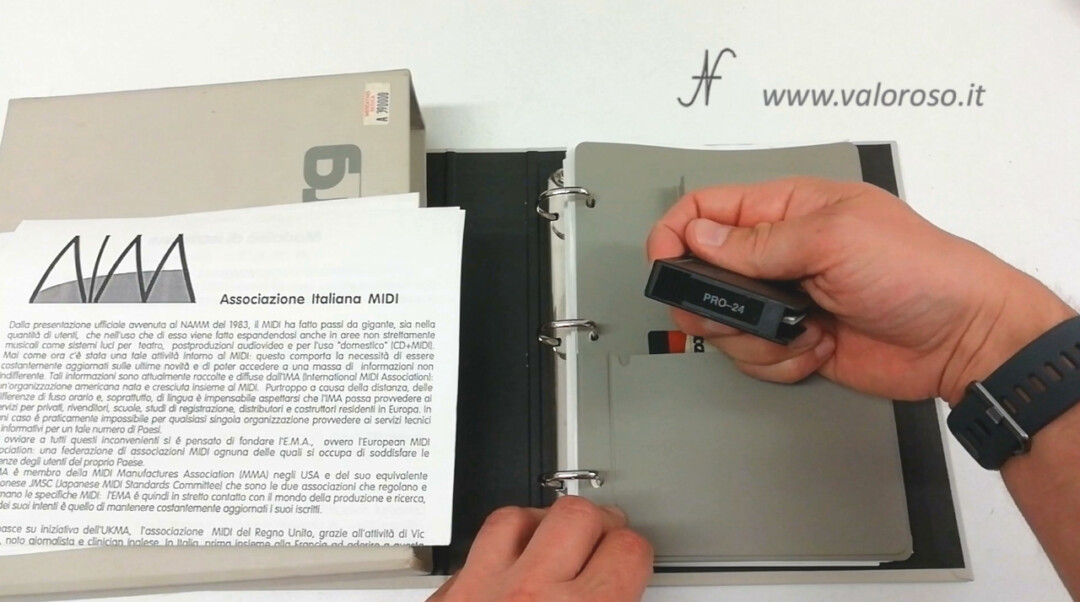
As you can read from the manual, the Pro 24 is a MIDI recorder for the Atari ST that, for many operations, works like a regular recorder. What differentiates it most from a traditional recorder is the fact that it records MIDI data and not sounds.
The computer, however, does not play any sound, it only controls the MIDI instrumentation. The sound possibilities of the instrumentation establish the limits of the sonorities and polyphony that can be obtained.
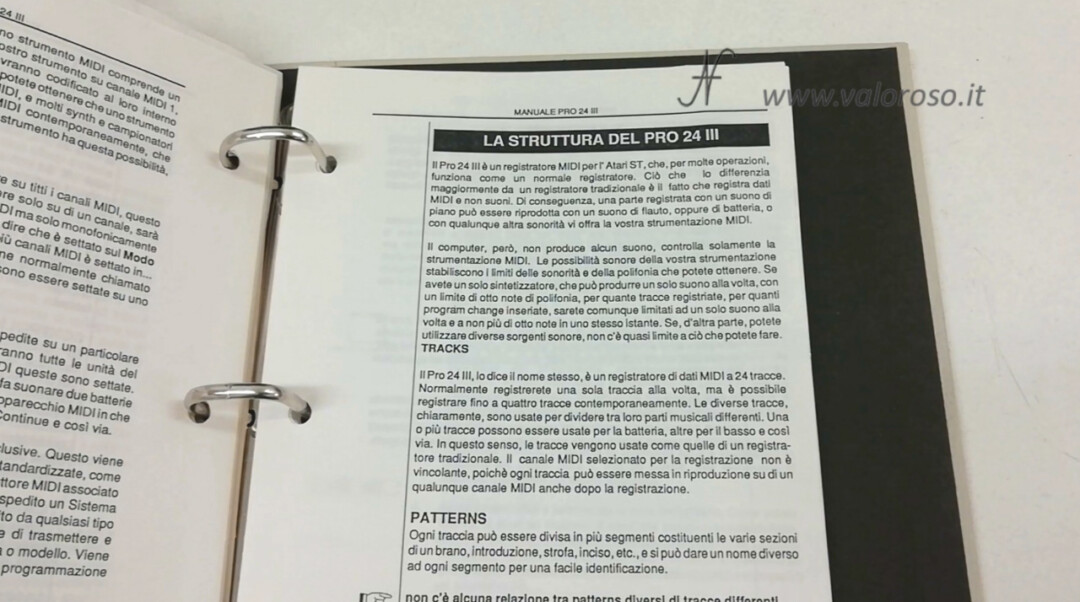
The Pro 24 III is a 24-track MIDI recorder.
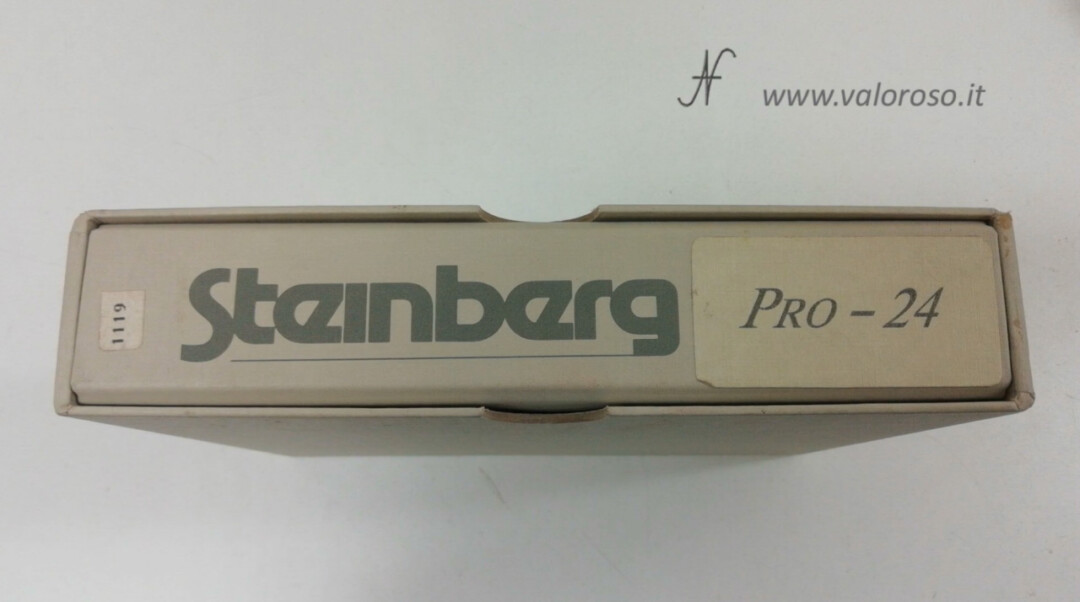
Connect and test the Atari 1040 ST, SM124 monitor and mouse
After describing the hardware and software they gave me, we connect the computer, the monitor and the mouse, so we can try them! The connections must be made with computer and monitors off.
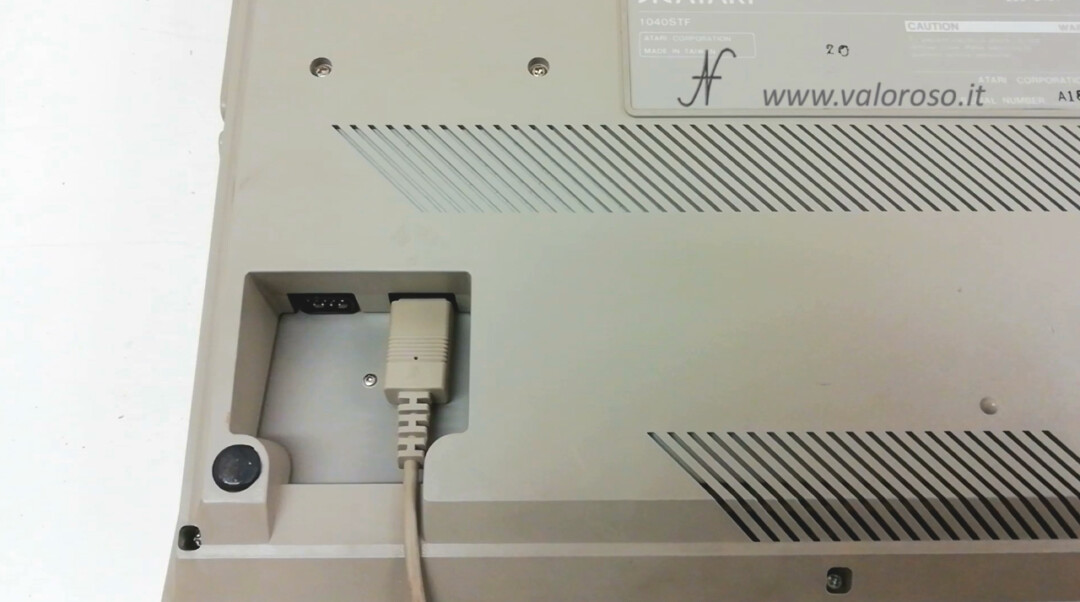
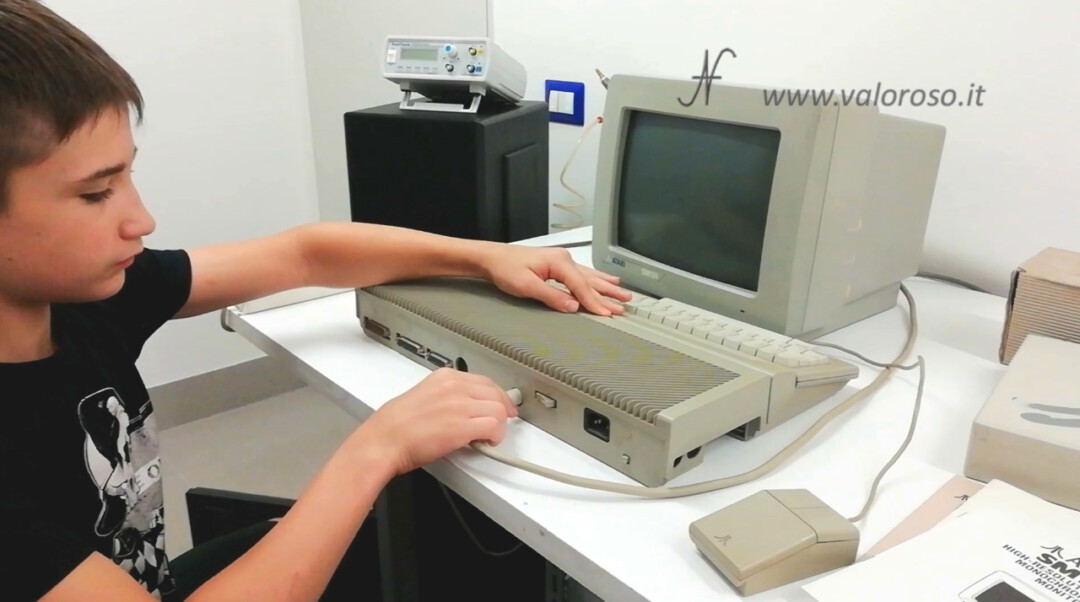
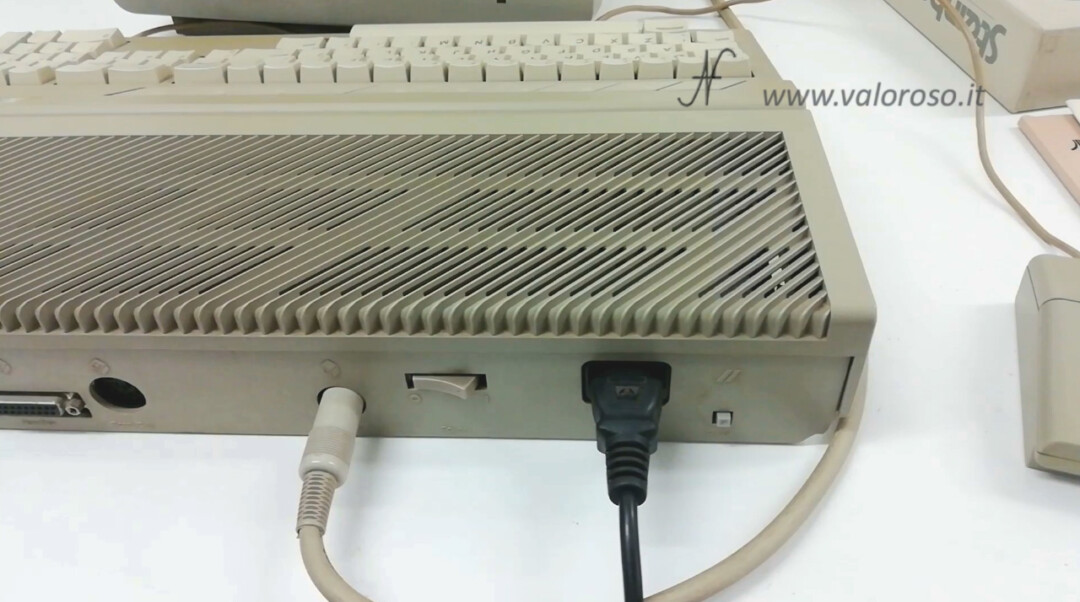
I test the computer turning it on directly, because the guy who gave it to me used it, from time to time, so I'm quiet. If it had been a computer abandoned for years, I would have had to follow all the verification procedures that I had already explained in this article.
We turn on the monitor first, and then the computer.
The monitor remains white, until we insert a diskette.

Unfortunately, with any disk that we insert, after an attempt to read, the computer displays the operating system. Evidently the floppy disk drive does not read.
Even by clicking on the drive icon, the computer prompts you to insert the diskette, even if it is already inside.
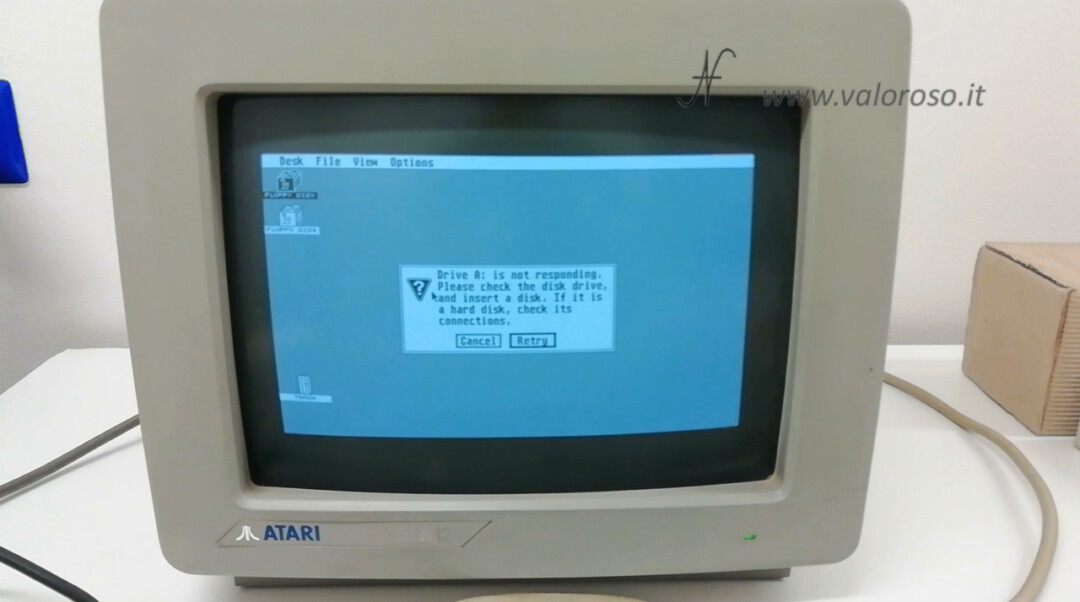
Never mind. I will try to fix the drive, but, in any case, it may be useful to replace it with a Gotek, to be able to load files from USB pen drives. I could download Atari programs from the internet, via a modern PC, and transfer them to pendrives and then upload them to this computer with the Gotek.
The Atari TOS operating system
The operating system of the Atari ST is called TOS (acronym for The Operating System) and includes several modules. One of these modules is the GEM (Graphics Environment Manager), which is the graphical interface.
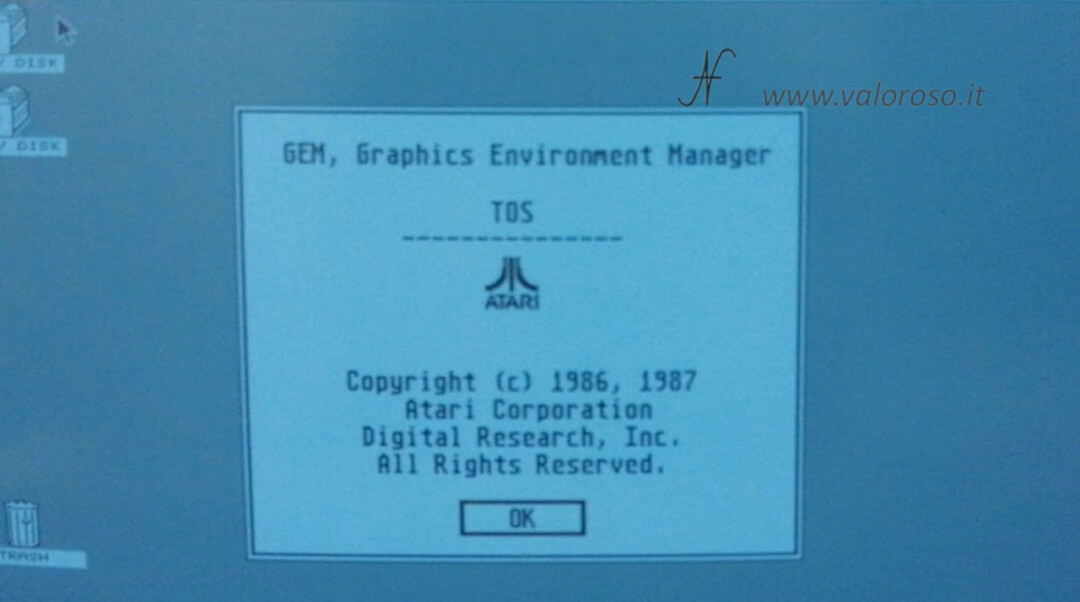
At the moment, unfortunately, with the floppy disk drive that does not read, we can not do anything else, except navigate the menus.
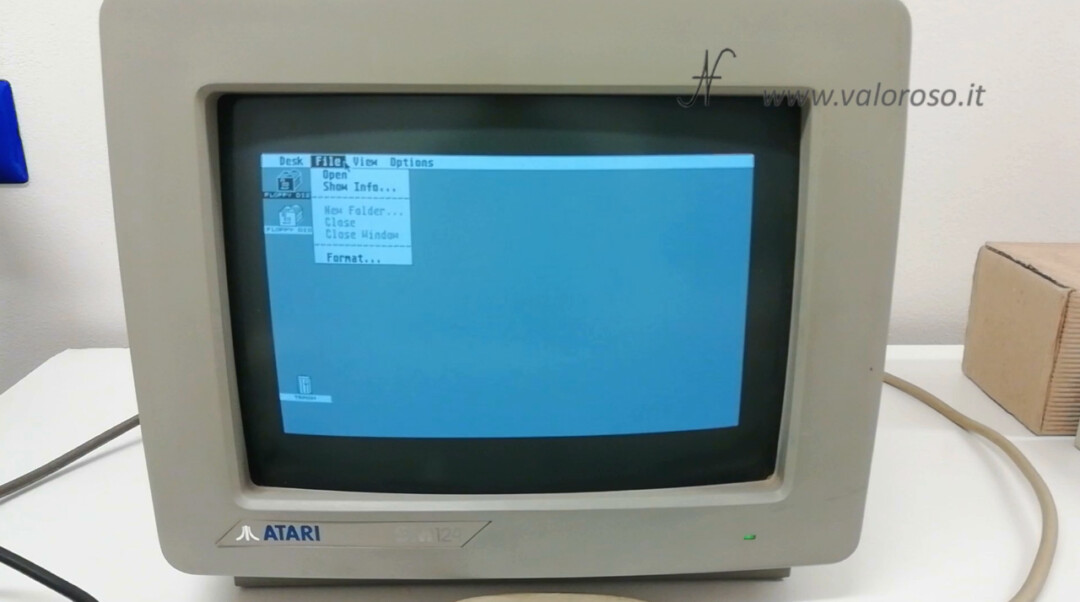
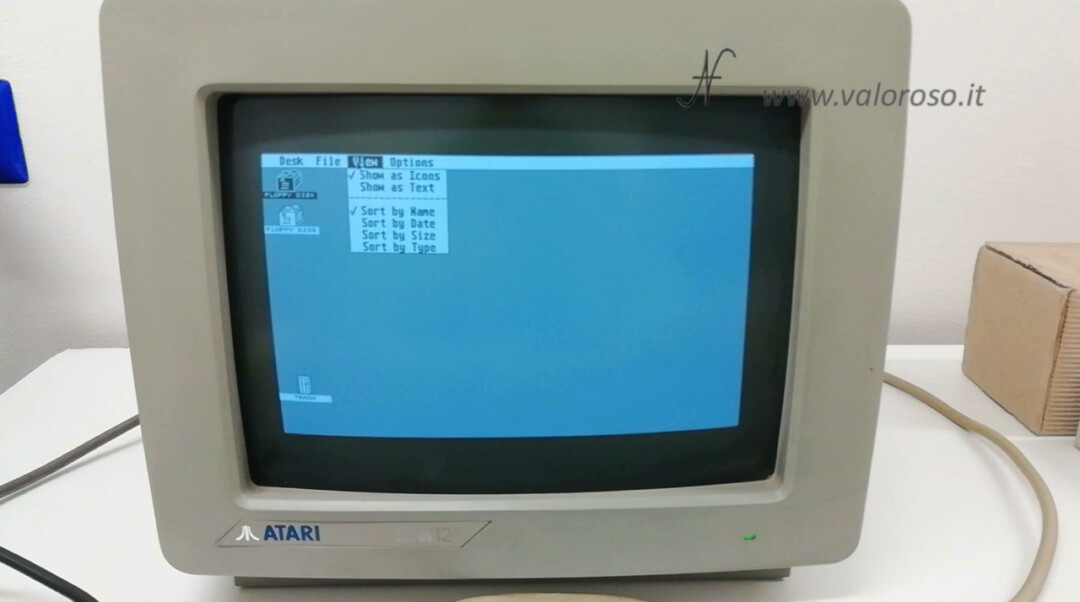
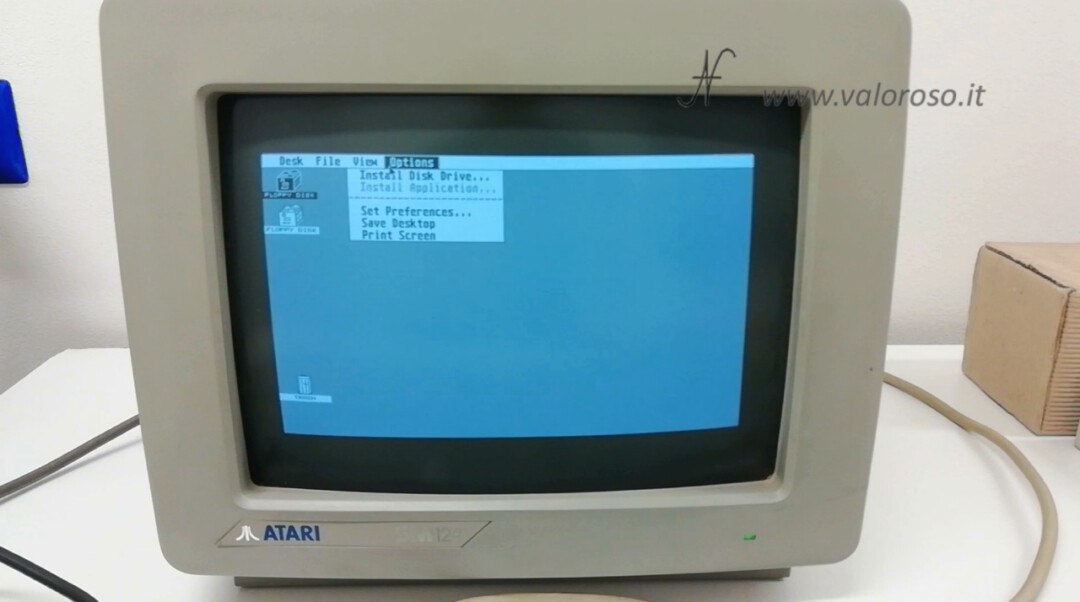
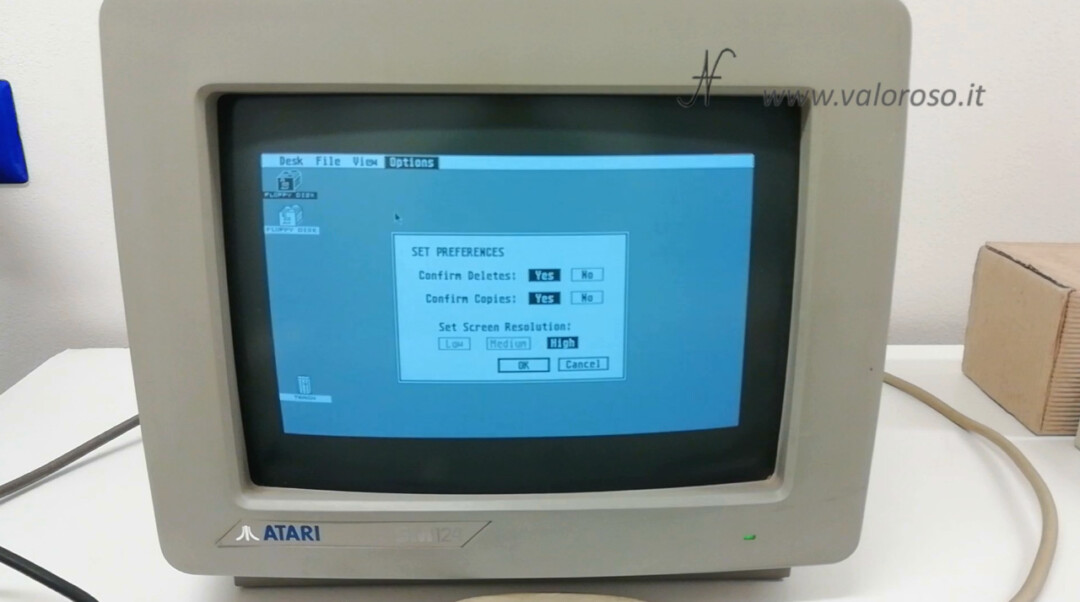
Continues...
Another repair that we will have to do concerns the missing button: the CAPS LOCK. I'll have to find a spare button.
In addition, I would also like to open the Atari 1040ST to see how it is made inside and to give it a nice clean, both inside and outside!
Credits: In the video, the background music is: Star Wars Return of the Jedi.

To be notified when I publish the other videos on this Atari 1040 ST F, and also the other videos related to retro computers and vintage electronics, I invite you to subscribe to the YouTube channel and activate the notification bell!
Good morning
I know well the PC atari 1040 ST
Is the product described for sale? and at what price?
Thank you
Good morning Francesco. In the blog I publish the photos and stories of the computers in my collection. They are not for sale, sorry. On eBay there are several for sale.
I also have this computer and I rekindled it after years, at least 15 but it was well preserved, and exactly as in your case the floppy drive does not work. Thanks for the idea of Gotek that I did not know but with the drive then how did it go? Did you find what was wrong and managed to repair it?
In realtà ancora non l'ho sistemato. Come hai notato, la mia collezione è piuttosto fornita e non riesco a stare dietro a tutti i computer in maniera "veloce". Ho acquistato una tastiera per recuperare il tasto mancante, nel frattempo! 🙂